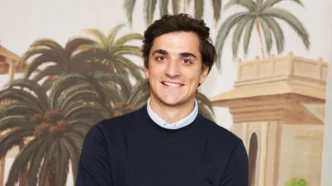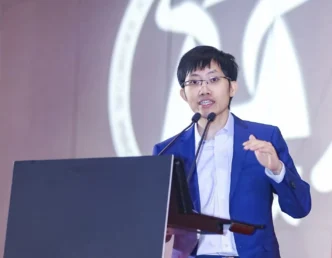After a decade building PayFit into one of Europe’s top HR tech unicorns, cofounder Florian Fournier is pivoting to a new frontier: defense tech. His latest venture, Orasio, is a bold move into AI-powered video surveillance, and it’s already off to a strong start with a €16 million seed round led by Frst, GFC, and Expeditions Fund.
Fournier has teamed up with CTO Arnaud Delaunay, a former machine learning engineer at FarmWise, and Fabio Gennari, a high-ranking French civil servant turned COO. Together, they’ve built a new startup that aims to detect real-world threats—like a person wielding a weapon or the start of a fire—by analysing live video feeds using advanced computer vision.
Orasio’s software is designed for flexible use, serving military customers, local governments, and private operators of sensitive infrastructure. The technology can run on cloud, on-premise, or directly “on the edge” — embedded within security cameras themselves. Crucially, Fournier says the system keeps all data local, eliminating the risks of sharing sensitive feeds with external servers or foreign platforms.
The valuation for this early-stage defence startup has not been publicly disclosed, but Fournier confirmed that the deal involved a stake below 20%, implying a minimum company value of €80 million.
A Race for AI Surveillance Sovereignty in Europe
Fournier acknowledges that real-time AI surveillance is controversial, particularly around privacy. In France, a 2023 law allowed limited use of such tools during the Paris 2024 Olympics, but widespread adoption still faces legal and public scrutiny. Despite the concerns, Fournier is confident regulation will evolve—and that Europe must have its own alternatives to non-European surveillance tech.
Most video surveillance solutions used by public agencies in France today are not built in Europe. The national police, for instance, was found to have used Briefcam, an Israeli surveillance tool, for facial recognition, allegedly breaching local laws. Fournier argues that relying on U.S., Israeli, or Chinese tech vendors raises both ethical and geopolitical risks, especially when it comes to data privacy and national sovereignty.
His pitch is simple: Europe should not outsource such a strategic capability. Orasio wants to lead the charge by offering fully compliant, sovereign solutions that can match or surpass the best global competitors.
According to Fournier, European startups like Wintics and Videtics have a head start but remain technologically behind. Their growth has also been relatively modest, with revenues in the €10–20 million range. Orasio, by contrast, is gunning for rapid product development and international expansion.
To get there, the team plans to grow from seven to twenty employees over the next year, hiring top engineering talent to build a product that works across military and civilian use cases. A first version tailored for defence customers is scheduled to enter testing next month, while another version for municipalities and private clients is expected to roll out by October.
Fournier, who remains on the board of PayFit, says he’s now fully focused on his new mission: “For the next 10 or 20 years, I want to put all my energy into this project. We need to move fast and build a European leader.”













